One of the most serious concerns in the cryptocurrency exchange sector, particularly among centralized exchanges, is the danger of being hacked. However, in other cases, such as the infamous Mt.Gox and Quadriga disasters, the people behind the exchange would simply grab your funds.
As a result, decentralized exchanges rely on automated smart contracts to conduct trades in a peer-to-peer (P2P) trading system, with the goal of reducing or eliminating the role of middlemen. We will explore the top 6 DEX you may invest in, and while we believe they are good investments, you are solely responsible for any profit or loss.
What is a decentralized exchange?
DEX is an exchange that operates without the oversight of a central authority. This means that the assets of users are not held by a single entity or company. The user keeps ownership of their private keys and never gives up custody of their assets to a third party. As a result, there is no single point of failure, making decentralized trading a much safer and more private experience. Top decentralized exchanges do not require any personal information and frequently do not require any kind of registration. DEXs are a major component of decentralized finance (or DeFi), which aims to create a financial system without a central governing body in the long run.
1. dYdX
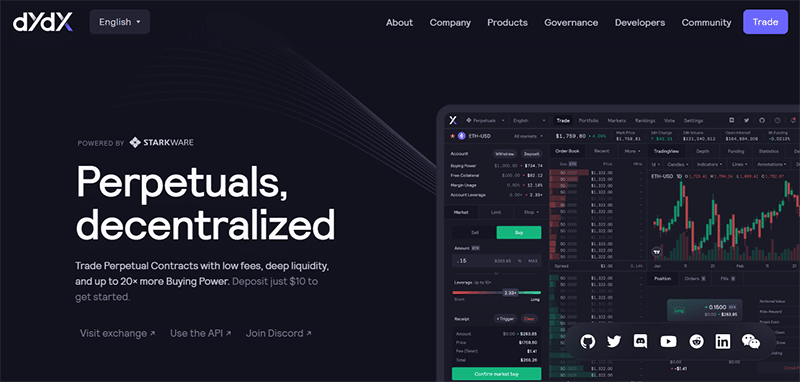
In 2017, Antonio Juliano, a former Coinbase engineer, founded dYdX. The Ethereum blockchain is used in the majority of its crypto margin trading solutions. The exchange, on the other hand, recently introduced Layer 2 for low-cost, instantly completed exchanges.
Early versions of its exchange platform offered traders limited crypto margin trading options with restricted assets. It has now upped its game by adding margin and perpetuals to a number of cryptocurrencies.
dYdX offers services such as isolated margin trading, cross margin trading, spot trading, perpetual contract trading, and lending and borrowing services. The exchange combines the security and transparency of a decentralized exchange with the speed and utility of a centralized one. The governance token is called DYDX, and there are 1 billion tokens in total.
2. Uniswap
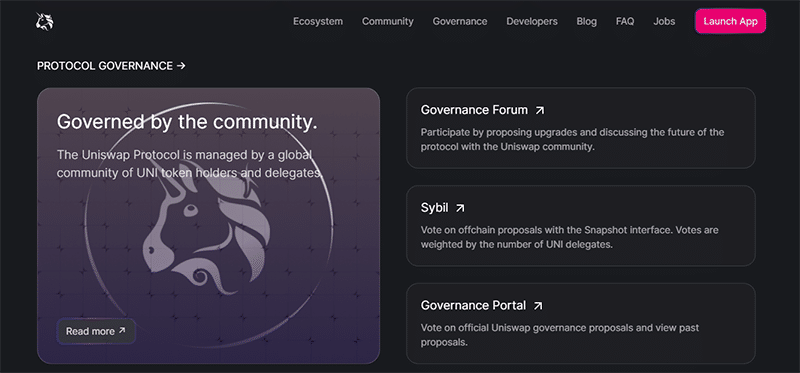
It is an Ethereum-based blockchain system that uses automated market makers (AMMs) and liquidity pools to support peer-to-peer trading. The AMM algorithm facilitates finding an appropriate token price based on supply and demand dynamics between the tokens in these liquidity pools when a trade is conducted. Liquidity providers (LPs) donate tokens to Uniswap pools, which are then compensated with a fee proportional to their share of the pool for each transaction.
UNI, Uniswap’s native governance token, allows for more community participation and monitoring. UNI token holders have the ability to vote on project advancements. The holders can also use the token to support liquidity mining pools, grants, partnerships, and other growth-oriented efforts aimed at increasing Uniswap’s usage and reach.
3. PancakeSwap
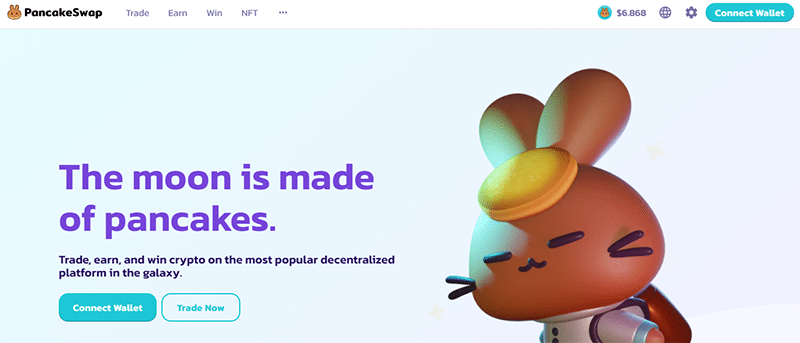
The project is built on Binance Smart Chain (BSC). The popular AMM-powered DEX facilitates token exchanges, staking, and yield farming. Users earn liquidity pools (LP ) tokens in exchange for staking tokens in protocol LP, which they can farm for CAKE, the platform’s native utility and governance token. Its platform includes a non-fungible token (NFT) marketplace, a lottery system, a prediction market, and an Initial Farm Offering (IFO).
PancakeSwap stresses interoperability by accepting wrapped token deposits. As a result, along with BNB and BUSD, a liquidity pool can incorporate digital assets like ether (ETH) and bitcoin (BTC).
4. Serum DEX
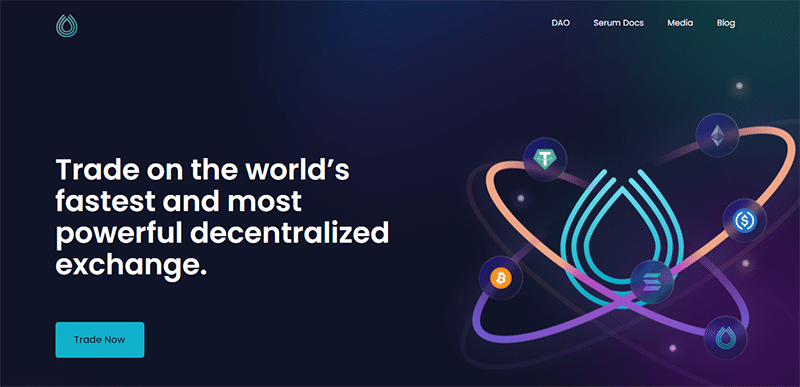
It is based on the Solana blockchain. It has among the lowest trading costs and fastest transaction completion times in the cryptocurrency business. It ensures that no components of its infrastructure are centralized. This includes avoiding the usage of oracles to centralized pricing feeds, a service that many DeFi protocols rely on.
The DEX allows for cross-chain trading, allowing users to trade assets from many blockchains. Additionally, it accepts wrapped currencies and stablecoins. It uses the native Serum token (SRM) as the main incentive and governing asset for the Serum ecosystem. SRM token holders can reduce trading fees through trading, staking, and participating in buy and burn fee incentives.
5. Kine Protocol
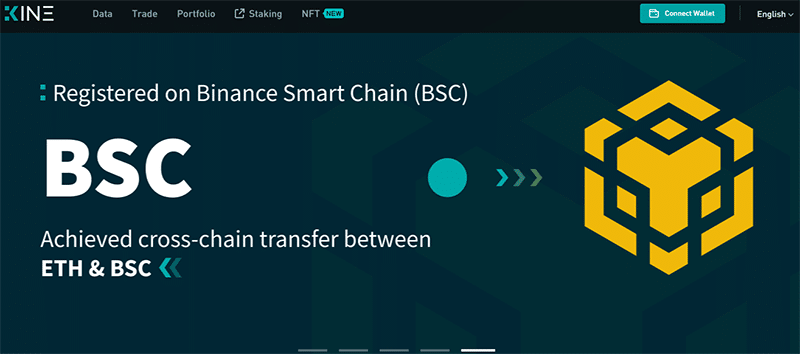
It’s available on the Ethereum, Polygon, Binance Smart Chain, and Avalanche blockchains. Users can access the site using a Web 3.0 wallet like MetaMask and choose which chain they wish to use because it is a decentralized system.
Kine develops general-purpose liquidity pools backed by a portfolio of digital assets. Traders can use the liquidity pool to open and close derivatives bets based on reliable price feed, eliminating the requirement for third-party counterparties.
Kine solves the restrictions of many existing peer-to-pool or peer-to-contract trading protocols by allowing third-party liquidation and extending the collateral base to any Ethereum-based assets. It’s a trading platform with on-chain staking, no slippage, and no gas fees.
6. SpookySwap
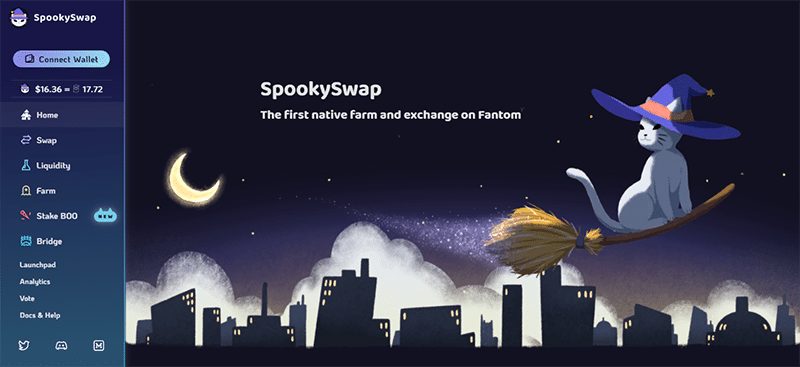
It is one of the first DEXs to use an Automated Market-Making (AMM) System on the Fantom Opera Network. By including a Halloween theme, SpookySwap’s UI is so user-friendly that it provides consumers with a seamless experience.
SpookySwap emphasizes the BOO token as a governance token and a variety of farms to entice users to join this Fantom project and help it grow. When you provide liquidity, you are rewarded with spLP (Spooky Liquidity Provider tokens), which represent your portion of the liquidity pool. Those spLP tokens can be staked in farms to earn BOO tokens, incentivizing users. There are 18 farms where you can stake spLP. Furthermore, SpookySwap created bridges that allow Ethereum and BSC tokens to be traded on its platform.
Conclusion
An increasing number of new users are exclusively conducting their cryptocurrency trading on DEXs, where a large number of new tokens are listed with exponentially larger possible profits. DEXs are also perceived as safer by users because they retain control over their wallets. The top 6 DEXs to add to your portfolio include dYdX, Uniswap, PancakeSwap, Serum DEX, Kine Protocol, and SpookySwap.